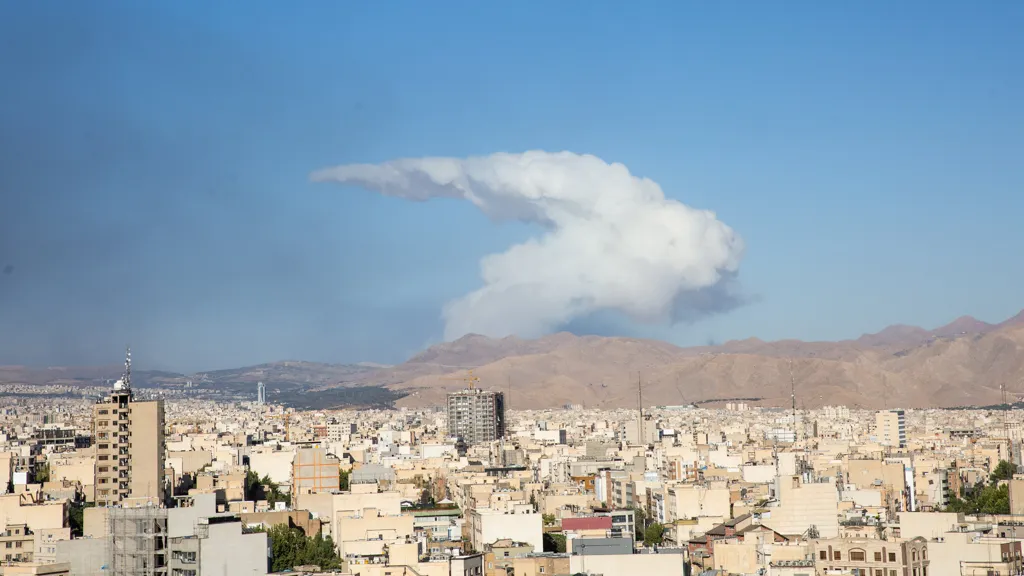Nobody, perhaps even President Trump himself, knows for sure whether the United States will wind up joining Israel in launching military strikes on Iran. "I may do it, I may not do it," he said on Wednesday. But with a third U.S. aircraft carrier on its way to the region and the president calling for Iran's "unconditional surrender," the chance of war seems higher than ever -- particularly now that Ali Khamenei, Iran's supreme leader, has gruffly rebuffed Trump's demand.
If the U.S. does attack, the most obvious target will be the Fordo nuclear site, a deeply buried facility where Iran enriches uranium and which, by most reports, can be knocked out only by a 15-ton bomb known as a Massive Ordnance Penetrator, or MOP. Less well known but surely on the U.S. target list is a new, still unfinished subterranean facility south of Iran's main (and now largely destroyed) enrichment plant at Natanz. American pilots would also almost certainly join their Israeli counterparts in attacking Iranian ballistic missile launchers and bases.
And then what? Nobody doubts the U.S. can do a lot of damage to Iran's nuclear capabilities, at least in the short term. What comes afterward is harder to predict.
Proponents of an American strike believe that we have no realistic choice other than to help Israel do as thorough a job as possible in setting back Iran's nuclear ambitions not just for months but years -- more than enough time to allow benign forces to shape events, including the possibility of Iranians overthrowing their widely detested rulers.
By contrast, skeptics fear that the lessons Iran's leaders will draw from an American attack is that they should have gotten a bomb much sooner -- and that the appropriate response to such an attack is to be more repressive at home and less receptive to diplomatic overtures from abroad. Skeptics also expect that Iran will respond to an attack by ramping up its malign regional activities, not least to embroil the U.S. in another Middle East war the Trump administration desperately wants to avoid.
I'm with the proponents. A nuclear-armed Iran, fielding missiles of ever-growing reach, is both an unacceptable threat to U.S. security and a consequential failure of U.S. deterrence. After years of Iran's prevarications, which led even the Biden administration to give up on diplomacy, to say nothing of Iran's cheating on its legal commitments -- detailed last month in a report by the International Atomic Energy Agency -- the world had run out of plausible nonmilitary options to prevent the regime from going nuclear.
But it's also foolish to dismiss the skeptics' case. Unintended consequences are a fact of life. An American strike could well drive Iran to double down on its nuclear bid as insurance against future strikes, especially if the regime believes it can safely resume the effort once the attacks stop. The key to making the effects of airstrikes stick is to give the regime reason to think otherwise.
Here, then, is what Trump should do: First, drop bunker busters on Fordo and other hardened nuclear sites to ensure that Iran has no fast route to a bomb. That would need to be followed up by dropping a diplomatic bunker buster on Tehran -- the proverbial offer Iran can't refuse.
It would look like this. As an inducement, the United States could offer immediate relief from most economic sanctions, along with a pledge that neither the United States nor Israel would attack Iran's critical energy infrastructure and other economic assets. The United States could also persuade Israel to end its bombing campaign.
The price? The regime would have to agree to two things: First, permanent, verifiable, comprehensive and immediate denuclearization, including a system of intrusive inspections and an end to its enrichment programs. Second, an end to its financial and military support for Hezbollah, Hamas and other foreign proxies. Trump could also threaten to lease stealth bombers and MOPs to Israel if Iran refuses the terms of the deal.
The supreme leader might well reject the deal out of rage or pride. But he would have to think carefully about the consequences. The regime, including its apparatus of repression, now looks weak and vulnerable to its people; they might well revolt against leaders who would choose uranium centrifuges over sanctions relief. As for Hezbollah and Hamas, they are now spent forces, yielding dwindling strategic benefits for Iran at an unaffordable financial and political cost. And if the regime still thinks it can still do anything in secret, it should ask itself how Israel was able to track down and assassinate so many of its top military commanders and intelligence officials as they slept in their beds.
Donald Trump wants to go down in history both as a peacemaker and as the man who stopped Iran from getting a bomb. And Khamenei does not want to go down in history as his regime's last ruler. There's a big, beautiful deal to be struck here. For all sides.
